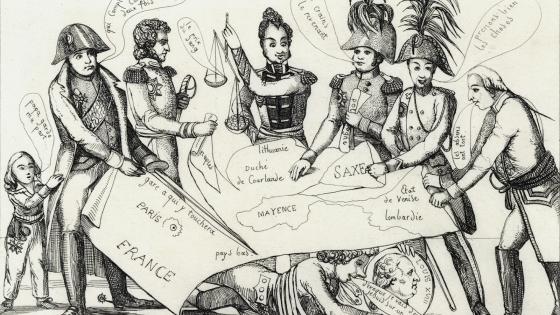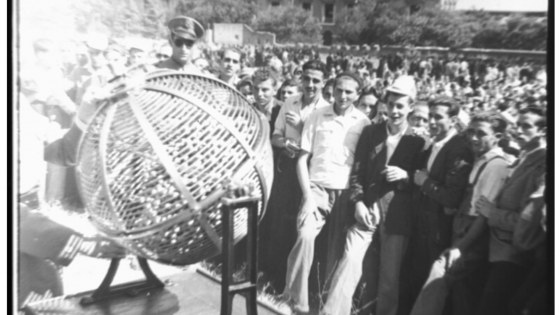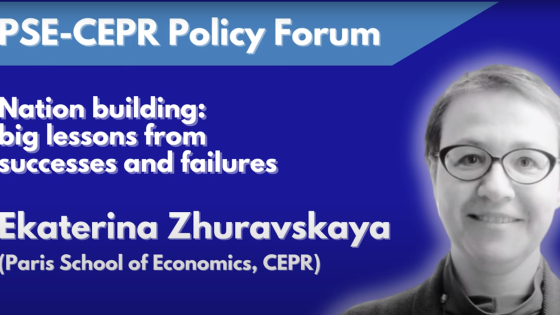Nationalist movements are experiencing a global revival, successfully framing new narratives and setting policy agendas around the world (Suesse 2023). And after decades of neglect, economists have started to examine the political economy of nationalism, often through the lens of nation building (for an overview, see the CEPR book by Rohner and Zhuravskaya 2023). Recent empirical studies of nation building have analysed military service in Spain (Roth and Bagues 2023), foreign intervention in Vietnam (Querubin and Dell 2016), or intergroup contact in Indonesia (Wong et al. 2018). A prominent stream of work builds on the theoretical framework by Alesina et al. (2020, 2021), wherein rational elites have some strategic motive to inculcate a ‘national identity’ among the wider population, which is susceptible to manipulation. Put differently, the idea is that nation building often starts from the ‘supply side’ due to strategic policy interventions. But when and where did political leaders start doing this, and why? Were these early attempts successful at a time when many modern tools for state propaganda were still in their infancy?
Early nation building in the German lands
In a recent paper (Kersting and Wolf 2024), we examine the emergence of a national identity in Germany. We argue that the beginnings of modern German nationalism can be traced back to the Napoleonic Wars. Specifically, to the attempt by political elites to foster the loyalty of ordinary people in turbulent times. After the defeat of Napoleon, the king of Prussia appealed to the idea of a nation to arouse a new fighting spirit and assure the loyalty of his newly acquired territories. From autumn 1813 onwards, he used a variety of early forms of nationalist propaganda.
What kind of nation-building propaganda was used in the early 19th century? Consider the text of the seizure proclamation by the king of Prussia for the Rhineland, from 5 April 1815. A key sentence highlighting the king’s goals reads: “Hence, with confidence I am entering your circle, people of these lands, and give you and your German fatherland back to an old German dynasty and call you Prussians! Meet me with honest, faithful, and adamant loyalty”.
In order to convince his new subjects, the king used a variety of existing tools, including homage ceremonies – which were rooted in medieval traditions for paying homage to a new ruler – and publications available in 1815. In the capital cities of the two new territories, Aachen (for the Rhineland) and Münster (for Westphalia), carefully planned homage ceremonies took place over several days and included the celebration of a mass in the cathedral, processions, fireworks, official banquets, feeding of the poor, and theatre performances. Importantly, the authorities in both cases invited representatives from all parts of society, including the nobility, clergy, burghers, and peasants. Theatre plays were performed alluding to an imagined common past and stressing the notion of German values. In Münster, a play was commissioned that focused squarely on the king of Prussia as the saviour of the German nation, likening the king of Prussia to Hermann, the Germanic chieftain who allegedly fought the Roman invasion in 9 CE. Nationalist writers such as Ernst Moritz Arndt or Heinrich von Kleist had popularised the topic as an allegory of the French occupation. In Münster in 1815, King Friedrich Wilhelm III was depicted as the new Hermann, saviour of the German nation. Afterwards, the homage celebrations were popularised in books, pamphlets, and newspaper articles. For instance, Arndt published a series of newspaper articles describing the ceremony in Aachen as a festival of nationalist emotions, celebrating the king of Prussia as the saviour of the Rhineland from French occupation.
Analysing early nation building
To analyse the effect of these early nation-building policies, we face three main empirical challenges. First, how can we measure identity changes without access to experimental data or polls? Next, what would be a plausible control group? Finally, how can we find data on possible confounders at the individual-level for the 1800s, without having access to census data? To tackle the first challenge, we elicit changes in social identity through the type of first names that parents give their children, following historical sociology and recent work in economics. To classify all names, we rely on a five-volume encyclopaedia on German first names from Seibicke, differentiating between national, religious, European, and ancient first names. Second, to construct a treatment and a control group, we leverage the unanticipated territorial change in German lands after the Peace of Vienna in 1815, when Westphalia and the Rhineland became part of Prussia (Huning and Wolf 2019). Families in the new Prussian regions, where important nation-building activities took place, form our treatment group. Families in six other cities are our control group (five cities outside of Prussia and Berlin), shown in Figure 1.
Figure 1 Treated cities in Prussia and control cities in other German lands after the Congress of Vienna in 1815
Notes: Map shows the location of the cities in our sample. Prussia before 1815 is marked in grey. The western region that became part of Prussia in 1815 is marked with dashed lines.
Using data on around 40,000 families, this setting allows us to compare the name choices of families in cities treated with Prussian nation-building propaganda with those in cities that did not become part of Prussia. Third, to rule out various confounding factors that might also account for name choices – such as differences in education, social status, mobility, or the traditions of individual parents – we exploit variation in the type of name choice made by the same parents over time by relying on family fixed effects. With this approach, we need to assume only that unobserved parent-level factors remain constant as long as the mother was of childbearing age.
The impact of early nation building
Figure 2 shows our estimated treatment effects on the probability of national given names over time using city fixed effects. This suggests that compared to untreated cities, parents in treated cities chose national first names for their children much more frequently than before. Using time and family fixed effects, we find that parents were more than 20 percentage points more likely to do so. Calculating persuasion rates, we compare the effect size to other papers and highlight the substantial magnitude of the effect for the two treated cities.
Figure 2 Event study, 1810–1821, city FE
Notes: Results present the differential probability that families from eventually Prussian cities choose a national first name for their child, relative to families from cities that do not become part of Prussia. For further details, see Kersting and Wolf (2024).
While it is difficult to precisely disentangle whether a change in the choices of first names is a sign of national identity, opportunism, or fear of repression, we present tentative evidence that choosing a national first name does indeed reflect national identity. To rule out opportunism, we use different connotations of national first names. In the case of opportunism, we would expect parents to choose specific national names that were also the names of Prussian rulers, such as Friedrich and Wilhelm. However, our treatment effects become even stronger when excluding this type of name. Fear of repression is unlikely in our context, as state capacity was rather weak. Moreover, parents were not legally restricted in their name choices at the time, nor do we have any evidence of repression related to name choices. Thus, our result suggests that families identified more strongly with the idea of a nation and their decision to use more national first names was neither opportunistic nor driven by fear to please the new rulers.
As an additional exercise, we look at changes in first names in villages. Here, we find no sign of a growing popularity of a national identity in the new Prussian territories compared to villages in other German lands, suggesting that the growing support for national ideas started as an urban phenomenon.
Within cities, we present evidence (only for one city, but in line with the historical literature) that it was the urban elite who chose national first names, suggesting political demand for national identity from this part of urban society.
Concluding thoughts
Returning to the origins of national identity, we show that ‘supply side’, notably strategic nation-building policies can have a substantial and causal effect at the level of individuals. Our findings – based on the nation building propaganda of Prussian elites around 1815 – suggest that such policies can shape identities and likely contributed to the emergence of a national identity and the rise of nationalism in the German lands. We also provide suggestive evidence that this nation building met the increasing political demand for a German nation, particularly among urban elites.
Further research could do more comparative work on the formation and changes of national identities across societies to better understand the effectiveness of different nation building policies. In our case, the interplay between French and German nationalism would be of particular interest. In addition, we need more work on the role of demand for identity formation, for example in response to the disruptions of technological change and rising mobility.
References
Alesina A, B Reich and A Riboni (2020), “Nation-building, nationalism and wars”, Journal of Economic Growth 25(4): 381–430.
Alesina A, P Giuliano and B Reich (2021), “Nation-building and education”, Economic Journal 131(638): 2273–303.
Bagues, M and C Roth (2023), “Interregional contact and national identity”, VoxEU.org, 3 January.
Bazzi, S, A Gaduh, A Rothenberg and M Wong (2018), “How intergroup contact can foster nation-building”, VoxEU.org, 7 January.
Dell, M and P Querubin (2016), “More bombs, more shells, more napalm: Nation building through foreign intervention”, VoxEU.org, 16 August.
Huning, T and N Wolf (2019), “How Britain unified Germany: Endogenous trade costs and the formation of a customs union”, VoxEU.org, 12 April.
Kersting, F and N Wolf (2024), “On the origins of national identity. German nation-building after Napoleon”, Journal of Comparative Economics, forthcoming.
Rohner, D and E Zhuravskaya (eds.) (2023), Nation Building: Big Lessons from Successes and Failures, CEPR Press.
Suesse, M (2023), “Why protectionists sometimes win: The narrative power of economic nationalism”, VoxEU.org, 12 November.






